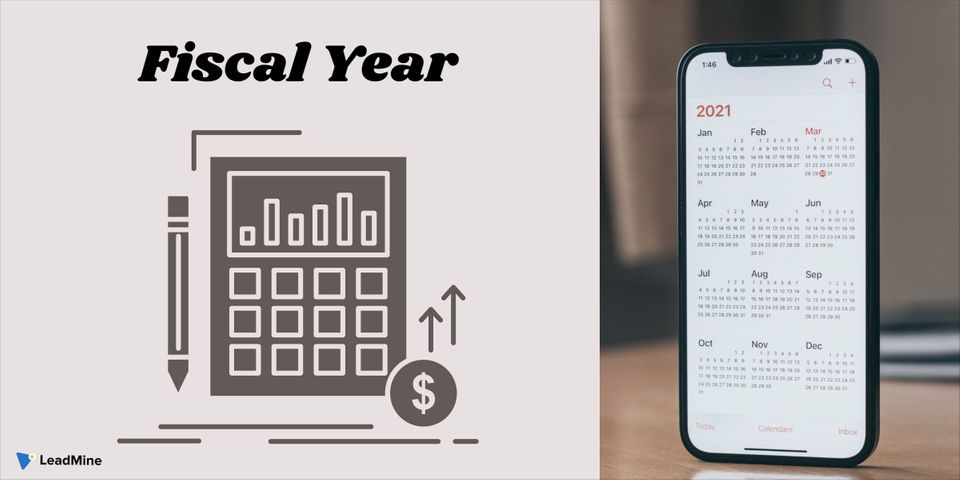A fiscal year is crucial to publicly trade corporations and their investors since it is the period over which revenue and earnings are calculated, making year-to-year comparisons possible. For tax purposes, the IRS allows companies to be either fiscal-year taxpayers or calendar-year taxpayers.
We will go over the following:
- What is the Fiscal Year?
- Different Fiscal Year
- Tax Year vs Fiscal Year
- What is the Best Date for Your Fiscal Year-End?
- Summary
What is the Fiscal Year? 🤓
A fiscal year is also known as a budget year or financial year, is a period of time used in government accounting that varies between countries, and for budget purposes. It is also used for financial reposting by companies and other organizations. Laws in many jurisdictions require company financial reports to be prepared and published on an annual basis but usually don’t require the reporting period to align with the calendar year such that 1st January to 31st December.
Taxation laws require accounting records to be maintained and taxes determined on an annual basis that corresponds to the fiscal year used for government purposes. The calculation of tax on an annual basis relevant for direct taxation such as income tax. Many annual government fees like council rates, license fees, etc are also charged on a fiscal year basis but others are charged on an anniversary basis.
A fiscal year is a period of time that lasts one year but not necessarily starting at the beginning of the calendar year. Countries, companies, and organizations can start and end their fiscal years differently depending on their accounting and external audit practices.
The US federal government runs from 1st October to 31st September fiscal year. For a non-profitable organization to observe the 1st July to 30th June fiscal year. Fiscal years that vary from a calendar year are usually chosen depends on the nature of the business. Nonprofitable organizations usually align their year with the timing of grant awards.
According to the IRS, a fiscal year involves 12 consecutive months ending on the last day of any month except December. Or, instead of observing a 12-month fiscal year, US taxpayers may observe a 52-to-53-week fiscal year.
Different Fiscal Year 🖖
- Government Fiscal Year
The use of a fiscal year is different in every country. Some examples for understanding:
- The United State Federal Government’s fiscal year starts on 1st October and ends on 30th September
- Australia’s fiscal year starts on 1st July and ends on 30th June
- Business Seasonality
The use of a fiscal year is different than the calendar year that presents a business opportunity for many companies like companies whose business is largely seasonal. Businesses and organizations may choose their fiscal year based on their preference.
A good practice of accounting principle suggests closing the fiscal year at the low point of business activity. For example, agriculture-related companies end their fiscal year after harvest season and consumer retail businesses end their fiscal year on 31st January. They have their busiest season in December and January so they can capture the entire holiday season in their year-end numbers.
- Cost Savings on Accounting and Audit Fees
However, the majority of businesses have their fiscal year-end on 31st December that is when the accounting companies are busiest. Sometimes, companies will pick a different year-end when the accountants are less busy to get a lower rate. This can be particularly true fact with private businesses who prefer to save money on audit and accounting fees.
Tax Year vs Fiscal Year 🥊
A tax year is a period you use to figure your business taxes. It is the accounting period you choose to calculate your income and expenses for taxation purposes. Even though the Internal Revenue Service (IRS) requires individuals and most small businesses to use the calendar year, it does make exceptions for businesses that provide a good reason for using an alternative method for reporting their income and expenses.
To qualify for a different fiscal year, you must have certain requirements like particular accounting methods and filing a Form 1128. The IRS distinguishes fiscal year from tax year and explained that a tax year can be either a fiscal year or the calendar year. You don’t have to select a tax year for your business, you can just file your first income tax return using the tax year.
For tax year purposes, the IRS says that you can use either of these two years as your business tax year:
- A calendar year: 1st January to 31st December
- Your company’s fiscal year
If your fiscal year ends on 31st December, you are using a calendar year as your business tax year. Your business fiscal year is always your tax year, but it doesn’t have to be. A corporation with a 31st March fiscal year-end may also file a corporate income tax return, effective 31st March.
Your business fiscal year is internal even it's personal. At the end of your fiscal year, you will report on your business financial situation to your shareholders or just to yourself. But your business tax year is external that you should report to IRS for tax purposes in a 12-month period.
What is the Best Date for Your Fiscal Year-End? 😵
Businesses typically consider two criteria for setting a fiscal year-end:

- Type of Business
A sole proprietorship or a business that is taxed as a sole proprietorship must use a 31st December fiscal year-end to match the personal tax year-end. - Business Cycle
If your company is not taxed as a sole proprietorship, you can choose the end of any quarter as your fiscal year-end. Most companies base their fiscal year-end on the business cycle based on their industry type, choosing the end of the busiest time for their fiscal year-end.
For example, companies that do most of their business in the summer might choose a 30th September year-end. If your business does a lot of work with the US government, you might choose a 30th September year-end to coincide with the federal government’s fiscal year-end. If your business does most of its business during the holidays, you might choose 31st December.
Summary
A fiscal year is a one-year time period chosen by a company to report its financial data such as financial reports, external audits, and federal tax filings are based on a company’s fiscal year. Many companies may choose to report their financial information on a non-calendar fiscal year based on the specific nature and revenue cycle of that business.
Do share your thought about the fiscal year with us at LeadMine.





